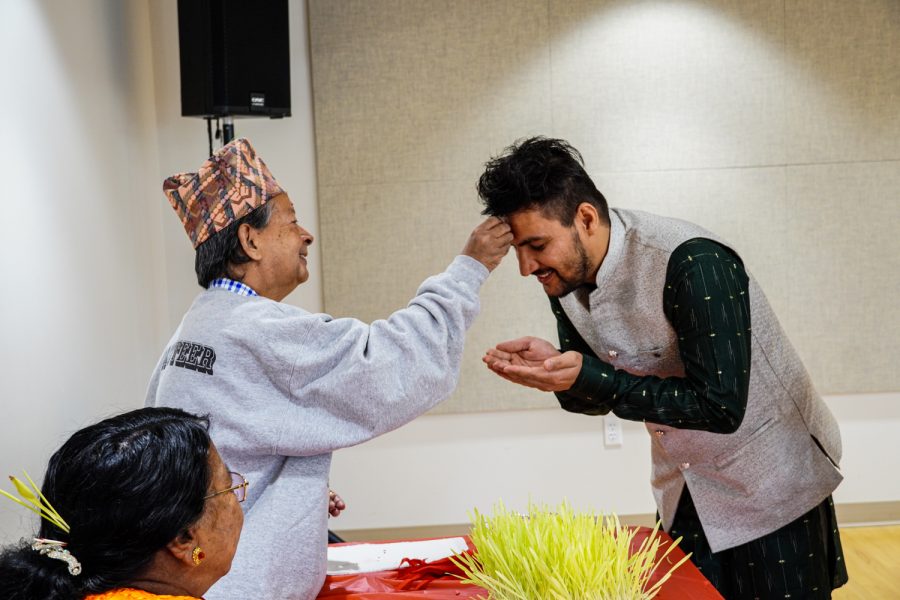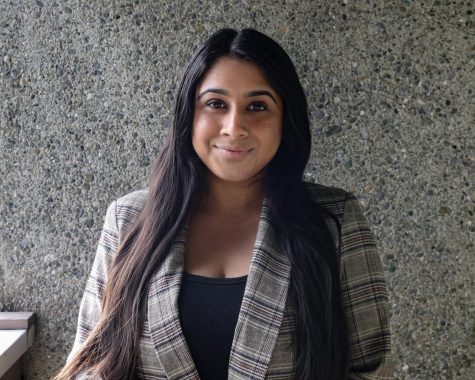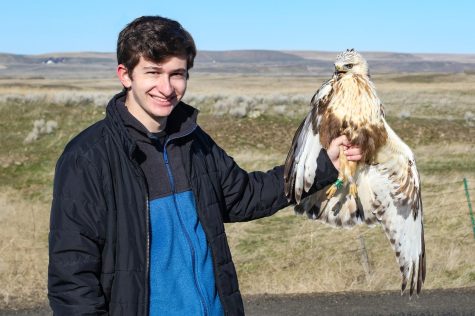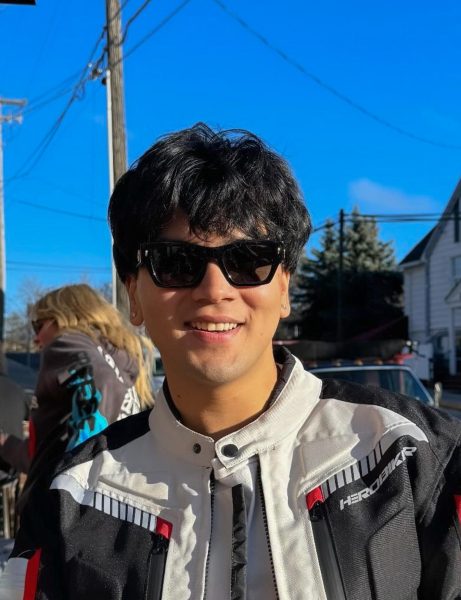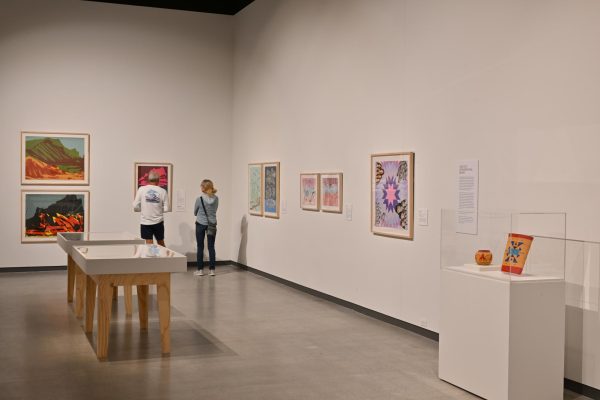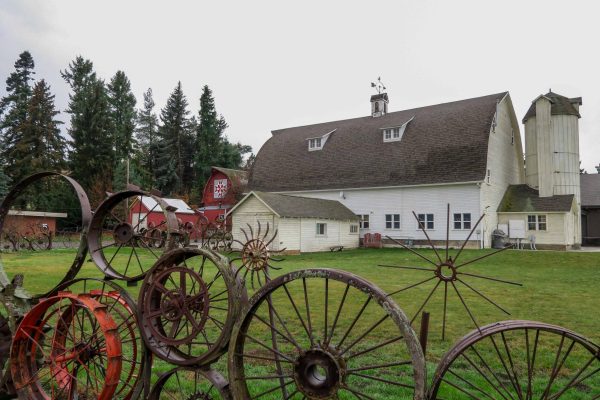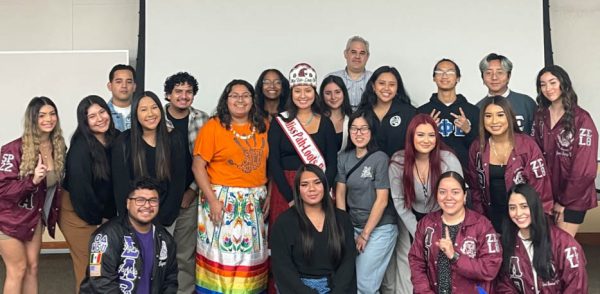Nepali community gathers for Dashain festival
Festival alleviates homesickness, begins with tika, jamara ceremony
Elder people place tika on younger people’s foreheads, Oct. 9.
October 10, 2022
The Chinook 150 event center was slowly filled with younger and elder members of the Nepali community bringing home-cooked traditional foods, dressed in traditional attire for the annual Dashain Festival at 11 a.m. on Sunday.
Dashain is a religious festival celebrated in Nepal, a country that borders India. The festival is usually a time when families gather to pray and give offerings to the goddess Durga, according to the Nepal Tourism Board.
Before the ceremony starts, a diya, or oil lamp, is lit, which symbolizes protection from any bad or negative entities, said Deepak Joshi, second-year doctoral student in electrical engineering and Nepali Student Association president.
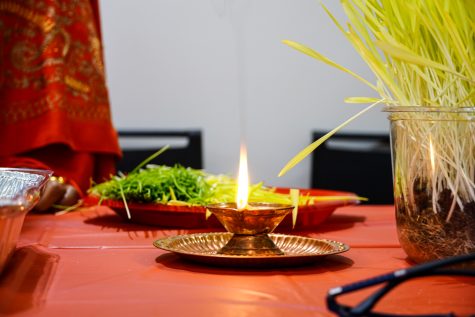
A diya is lit to protect from negative entities, Oct. 9.
“The ceremony starts with the [eldest married couple], who puts tika on each other. Then they put it on their son and daughter-in-law,” said Anita Paneru, doctoral student studying plant pathology.
The tika prepared for Dashain is a mixture of rice, yogurt, sugar and vermillion powder, which the eldest people, such as parents or grandparents, place on younger people’s foreheads. Jamara, a barley plant, is also received and placed behind the ear as a sign of a blessing from the goddess Durga.
During a ceremony, attendees received a long red cloth, which was tied around their necks. They also received peda, an Indian sweet, as an offering.
The ceremony was about 30 minutes, with attendees patiently waiting for their turn to receive the tika and jamara. Students who were not Nepali were also encouraged to participate and experience Dashain to its fullest.
“I wanted to know more about the culture since I don’t have a lot of knowledge about it. For my major, it’s good to know about cultures so I can be a better help to people in the future, and for me personally,” said Elizabeth Baker, first-year master’s student in counseling.
Baker got to participate in the tika and jamara ceremony, with the encouragement of Joshi.
“I love food, so trying the food [was my favorite part]. Also, the people. I’ve enjoyed talking to the people here,” she said.
Rice, paneer, rajma and bara were some of the home-cooked meals that were served to attendees. After the ceremony, attendees got to eat and chat while listening to Malshree Dhun, music played during Dashain.
After lunch, everyone gathered around to listen to a guitar performance by Abodh Poudyal, third-year doctoral student in electrical engineering. A few members of the community joined him and sang different songs, some in their language and others in Hindi.
After the musical performances, an exhilarating game of bingo was put on with attendees shouting out guesses of what numbers would be called out. There were four rounds, and everyone joined in on the fun, creating a competitive but joyful atmosphere.
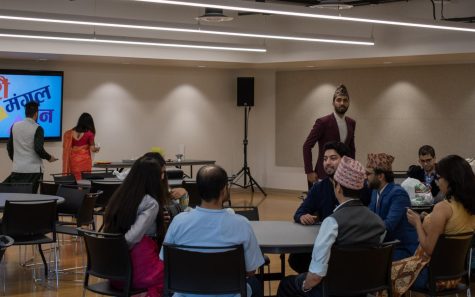
The Nepali community is tight-knit and supportive, said Deepak Joshi, second-year doctoral student in electrical engineering and Nepali Student Association president, Oct. 9.
“It’s a [strong community]. The senior helps the junior, and they [the elders] support their education and also sometimes if someone is sick or during pregnancy in Pullman. It’s a nice community,” Joshi said.
He said he knows everyone in the Nepali community because it is tight-knit. Many members of the community are from Nepal and homesickness is common, so having this community help alleviate that negative feeling.
“We get to know each other closely, like we can share our thoughts or feeling. If we don’t celebrate [the festivals], then we miss our home and that is very bad, it’s a lonely feeling,” Joshi said.
He said the university was helpful when it came to deciding on the Chinook as a place to hold the festival. Last year, Dashain was held in Joshi’s apartment.
Joshi said he wants to hold the festival in a more public area next year and wants to advertise for it openly, in hopes of having non-Nepali students come and experience their culture.

